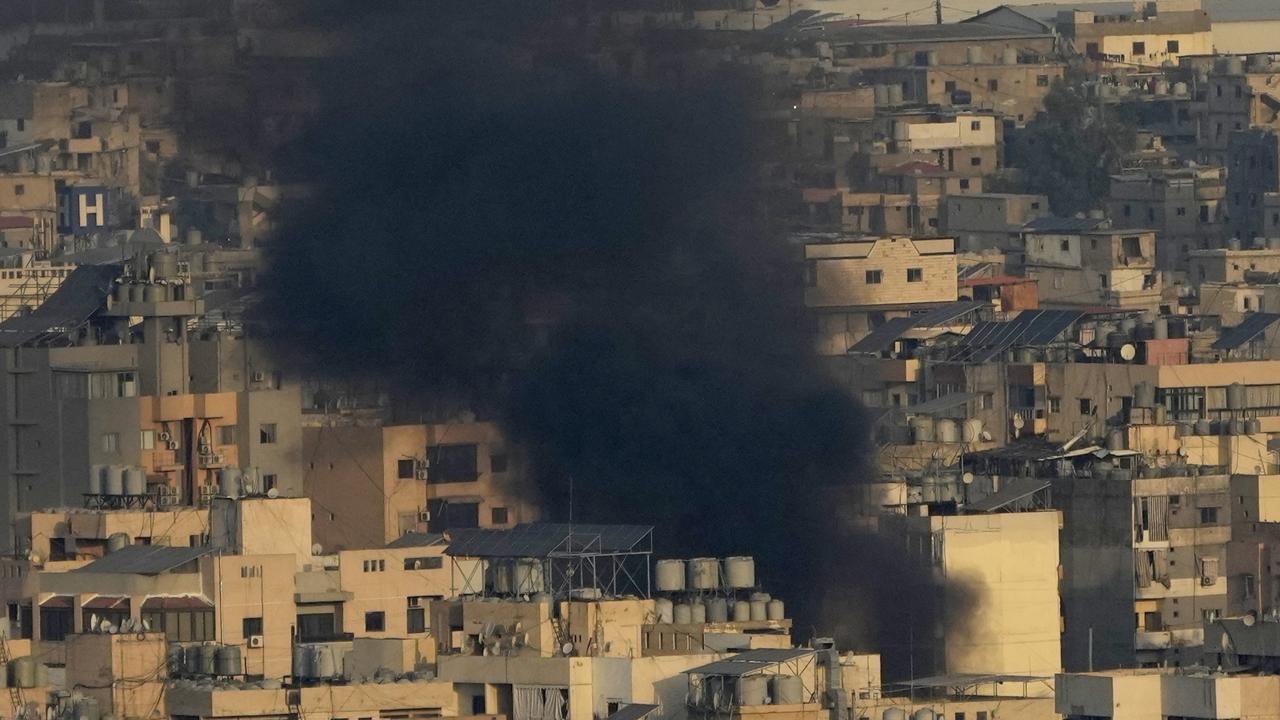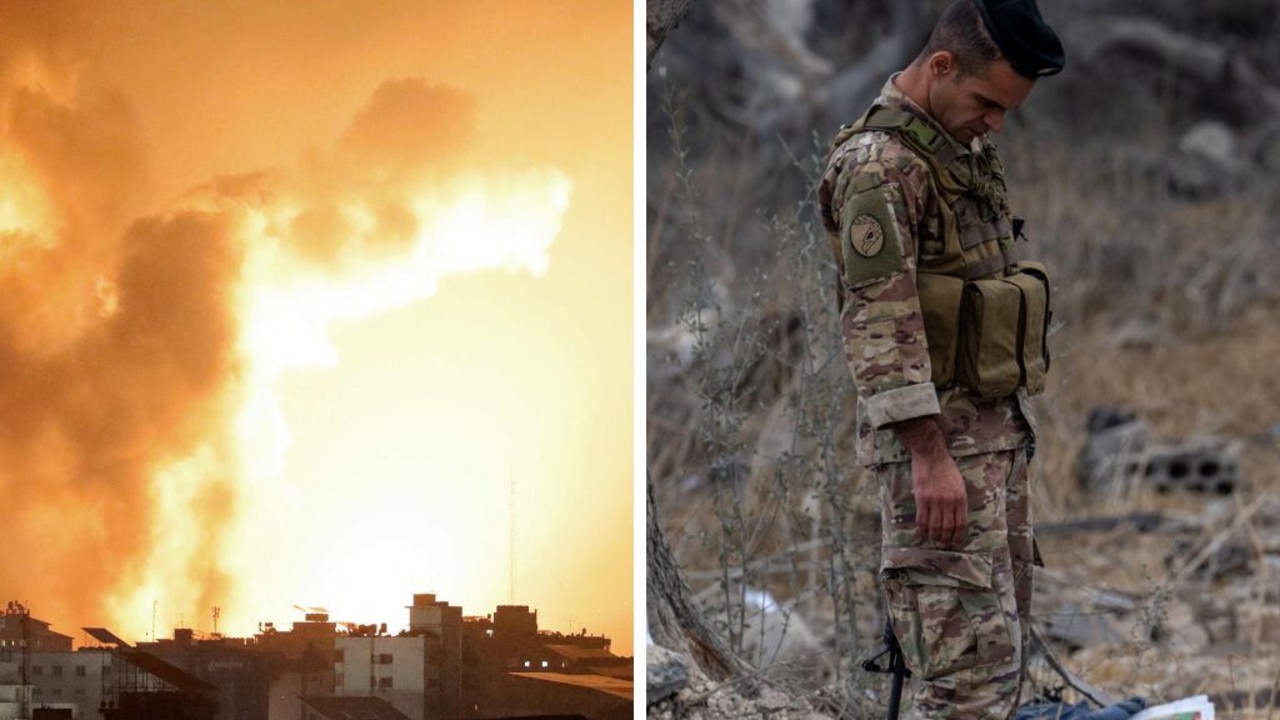North Korea blows up roads linking to South, declares Seoul as ‘primary foe’ as tensions surge
A country has been threatened with a “horrible disaster”, as the world’s most isolated nation takes drastic measures that have sent tensions through the roof.
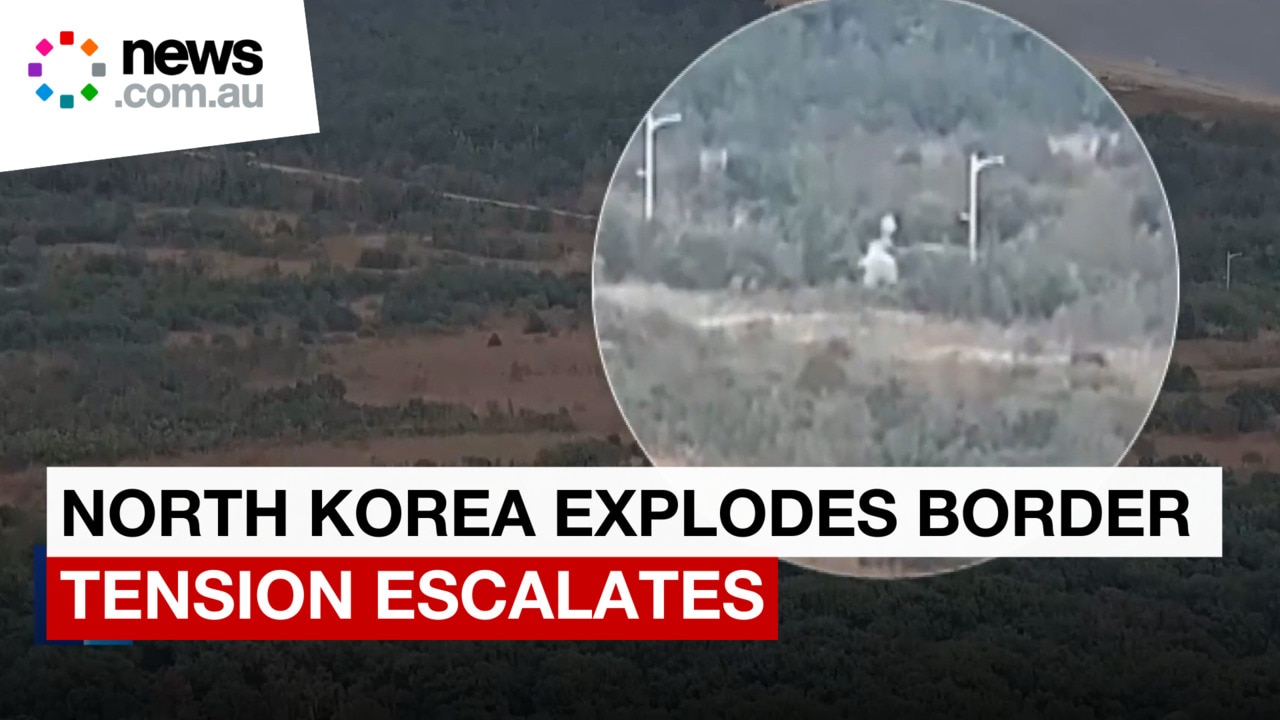
World
Don't miss out on the headlines from World. Followed categories will be added to My News.
North Korea is escalating tensions on the world’s hottest peninsula by severing its last remaining connections to South Korea, as Kim Jong-un’s regime further isolates itself from the developed world.
In a dramatic move, North Korea’s army announced it would take “substantial military steps” to cut off roads and railways connecting the two countries, fortifying its already heavily militarised border.
It was later revealed that “cutting off roads” meant obliterating them with high-charged explosives.
“North Korea has detonated parts of the Gyeongui and Donghae roads north of the Military Demarcation Line,” the Joint Chiefs of Staff said on Tuesday.
“There has been no damage to our military, and our forces conducted counter-fire in areas south of the MDL,” it added.
The JCS added late Tuesday that some sections of railways connecting the North to the South had also been detonated.
The gesture has followed months of aggressive action by Pyongyang, including laying new landmines and building antitank traps along the border.
The latest declaration formalises North Korea’s hardened stance, following Kim’s decision earlier this year to abandon the longstanding policy of peaceful reunification.
North Korea now refers to the South as its “primary foe” and “invariable principal enemy,” marking a new low in inter-Korean relations.
“The acute military situation on the Korean peninsula requires the armed forces of the DPRK to take more resolute and stronger measures in order to defend national security,” the General Staff of the Korean People’s Army (KPA) said in its statement.
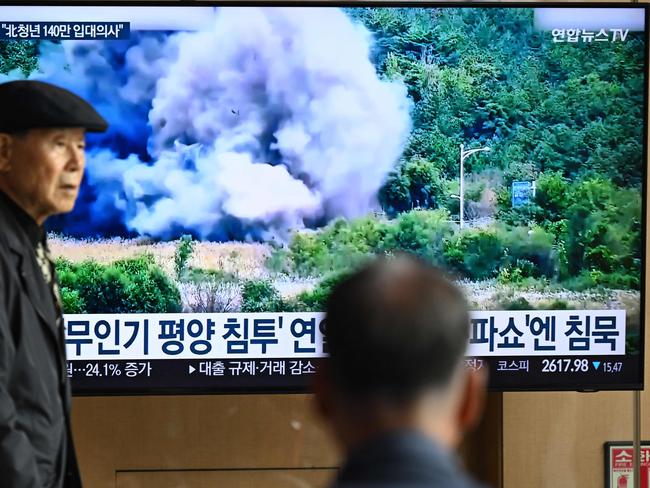
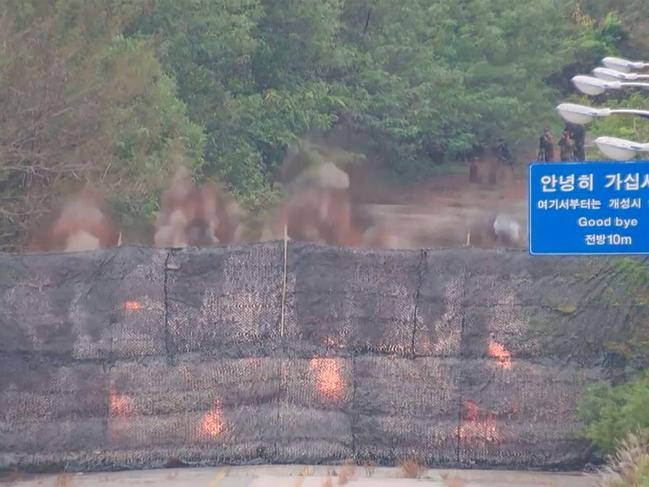
Adding to the geopolitical storm, Kim Jong-un’s powerful sister warned on Tuesday that the country had “clear evidence” Seoul’s military was behind recent drone incursions over Pyongyang, and warned of reprisals.
“We secured clear evidence that (South Korea) military gangsters are the main culprit,” the North’s key spokeswoman Kim Yo Jong said, adding “the provocateurs will have to pay a dear price.”
“The moment that a drone of the ROK is discovered in the sky over our capital city once again will certainly lead to a horrible disaster,” she added.
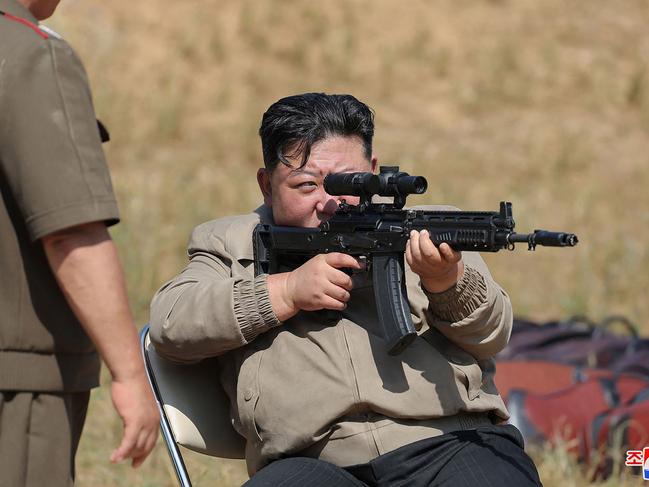
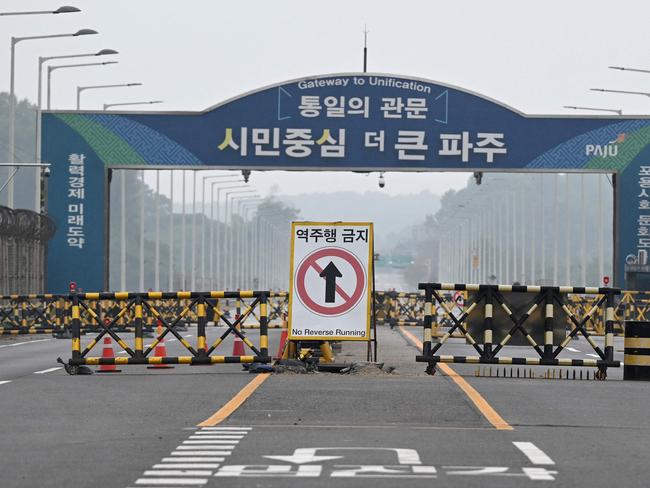
Tensions between North and South Korea have simmered for years, but the divide appears to have grown deeper, especially after Pyongyang ramped up its rhetoric and actions in response to the South’s military exercises and increased US presence in the region.
Recent visits by US strategic assets, including aircraft carriers, bombers, and submarines, have further fuelled North Korea’s hostility. Camp Humphreys, the largest US base not on North American soil, is a primary concern for powerbrokers in the North, who are increasingly wary of Washington’s capabilities in the region.
Kim Jong-un has made a name for himself over the years by stoking tensions, but the South has remained steadfast despite sitting in the crosshairs of a rogue nuclear dynasty.
The South’s Joint Chiefs of Staff dismissed North Korea’s announcement as “a desperate measure stemming from the insecurity of the failed Kim Jong Un regime” and warned that it would only lead to further isolation for Pyongyang.
Experts believe North Korea’s decision to cut ties may serve more as a strategy to legitimise its aggressive military build-up.
Leif-Eric Easley, a professor at Ewha Womans University in Seoul, suggests that Kim’s actions could be a way to deflect blame for North Korea’s economic struggles by exaggerating external threats.
“Kim Jong Un wants domestic and international audiences to believe he is acting out of military strength, but he may actually be motivated by political weakness,” Prof Easley explained.
“North Korea’s threats, both real and rhetorical, reflect the regime survival strategy of a hereditary dictatorship.”
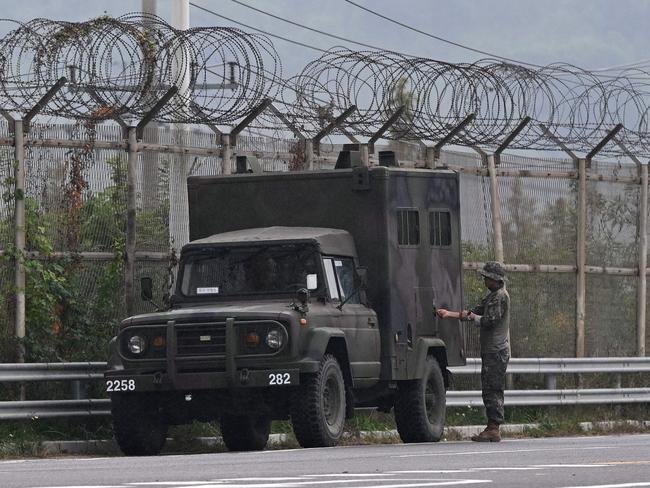
North Korea has also openly pursued to strengthen ties with Russia and deepen its nuclear ambitions. At a time where Russia is facing heavy scrutiny from Western powers while locked in a bloody war to its south, the Kremlin has welcomed co-operation with Pyongyang and reports from Ukraine suggest North Korean troops have already been deployed on Russia’s behalf.
Kim has often threatened to use nuclear weapons against the South, sparking further concern in Seoul and the West.
During a recent Armed Forces Day parade, South Korean President Yoon Suk Yeol warned that any use of nuclear weapons by the North would result in the end of Kim’s regime.
But the consequences run a lot deeper than the fate of just two nations, with nuclear experts warning that as soon as a hostile nation launches a nuclear weapon, all hell could break loose across the globe in under an hour.
Even with this obvious threat hanging over inter-Korean relations, co-operation between the two states freefall since January when Kim announced that the North would no longer seek reconciliation or reunification with the South.
He has spent much of 2024 framing their relationship as one between two hostile countries “at war”.
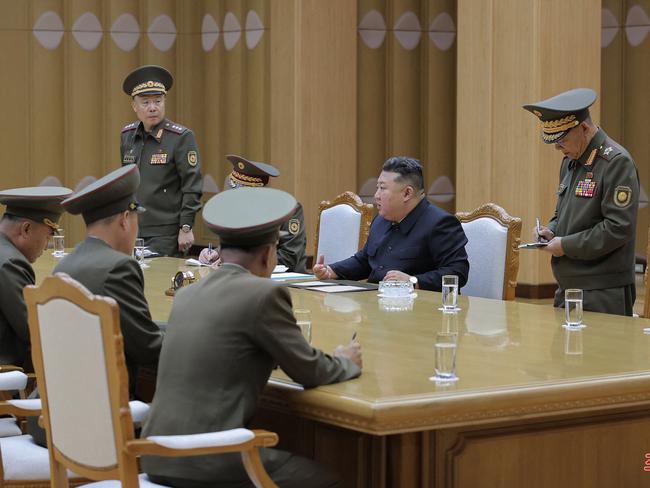
It marks a stark departure from previous efforts, however tentative, towards reconciliation and peaceful reunification — a hope that has long faded in the face of the North’s growing militarisation and nuclear ambitions.
As tensions rise, North Korea notified US forces of its latest actions to “prevent any misjudgment and accidental conflict”.
The United Nations Command, tasked with securing the heavily fortified DMZ between the Koreas, confirmed the communication but declined to provide further details.
But even as Kim Jong-un strengthens his grip on North Korea’s future, South Koreans remain largely detached from the looming threat, continuing their daily lives in the shadow of one of the world’s most dangerous geopolitical flashpoints.
The issue, it appears, is laid to rest on the shoulders of thousands of young conscripted males in South Korea’s military. A spokesman said this week the military is “fully ready” to respond after North Korea ordered troops on the border to prepare to fire.
“Our military is closely monitoring the situation and standing fully ready for the North’s provocations,” Lee Seong-joon, a spokesman for the South’s Joint Chiefs of Staff (JCS), told a press briefing.
Originally published as North Korea blows up roads linking to South, declares Seoul as ‘primary foe’ as tensions surge


